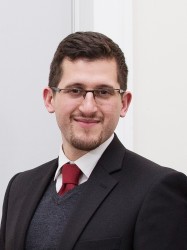BibTex format
@article{Abdul-Khalek:2020:10.1186/s13031-020-00316-7,
author = {Abdul-Khalek, R and Kayyal, W and Akkawi, AR and Almalla, M and Arif, K and Bou-Karroum, L and El-Harakeh, A and Elzalabany, M and Fadlallah, R and Ghaddar, F and Kashlan, D and Kassas, S and Khater, T and Mobayed, N and Rahme, D and Saifi, O and Jabbour, S and El-Jardali, F and Akl, E and Jawad, M},
doi = {10.1186/s13031-020-00316-7},
journal = {Conflict and Health},
title = {Health-related articles on Syria before and after the start of armed conflict: a scoping review for The Lancet-American University of Beirut Commission on Syria},
url = {http://dx.doi.org/10.1186/s13031-020-00316-7},
volume = {14},
year = {2020}
}

